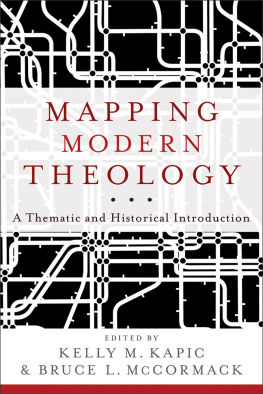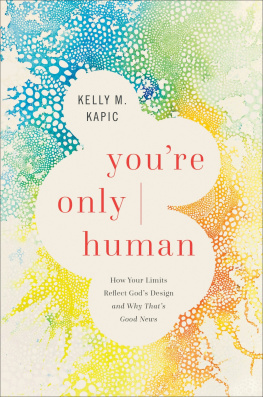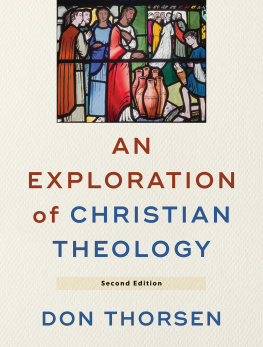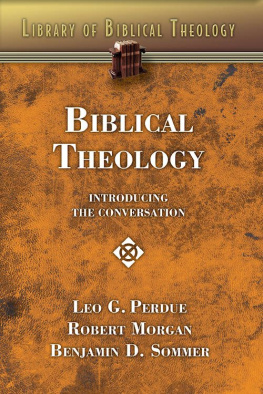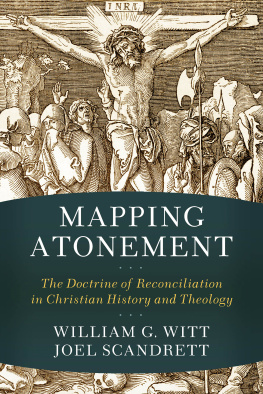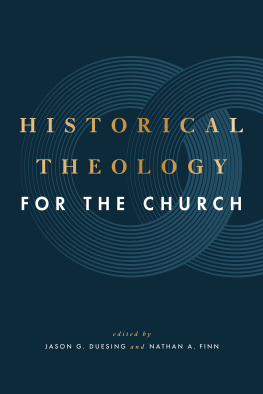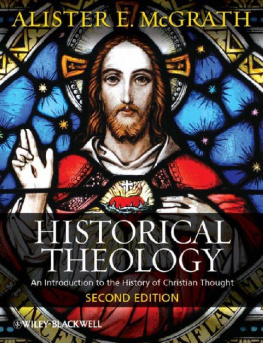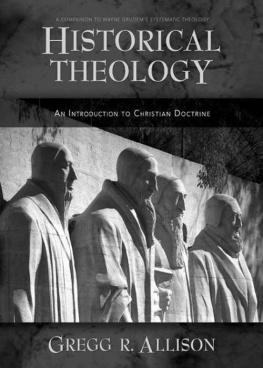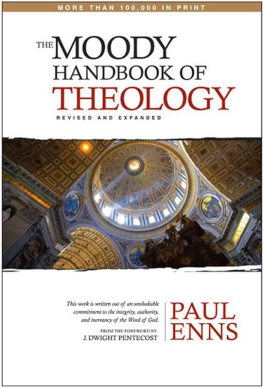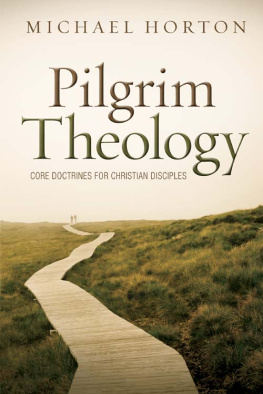Kelly M. Kapic - Mapping Modern Theology: A Thematic and Historical Introduction
Here you can read online Kelly M. Kapic - Mapping Modern Theology: A Thematic and Historical Introduction full text of the book (entire story) in english for free. Download pdf and epub, get meaning, cover and reviews about this ebook. year: 2012, publisher: Baker Publishing Group, genre: Religion. Description of the work, (preface) as well as reviews are available. Best literature library LitArk.com created for fans of good reading and offers a wide selection of genres:
Romance novel
Science fiction
Adventure
Detective
Science
History
Home and family
Prose
Art
Politics
Computer
Non-fiction
Religion
Business
Children
Humor
Choose a favorite category and find really read worthwhile books. Enjoy immersion in the world of imagination, feel the emotions of the characters or learn something new for yourself, make an fascinating discovery.
- Book:Mapping Modern Theology: A Thematic and Historical Introduction
- Author:
- Publisher:Baker Publishing Group
- Genre:
- Year:2012
- Rating:3 / 5
- Favourites:Add to favourites
- Your mark:
- 60
- 1
- 2
- 3
- 4
- 5
Mapping Modern Theology: A Thematic and Historical Introduction: summary, description and annotation
We offer to read an annotation, description, summary or preface (depends on what the author of the book "Mapping Modern Theology: A Thematic and Historical Introduction" wrote himself). If you haven't found the necessary information about the book — write in the comments, we will try to find it.
Mapping Modern Theology: A Thematic and Historical Introduction — read online for free the complete book (whole text) full work
Below is the text of the book, divided by pages. System saving the place of the last page read, allows you to conveniently read the book "Mapping Modern Theology: A Thematic and Historical Introduction" online for free, without having to search again every time where you left off. Put a bookmark, and you can go to the page where you finished reading at any time.
Font size:
Interval:
Bookmark:

2012 by Kelly M. Kapic and Bruce L. McCormack
Published by Baker Academic
a division of Baker Publishing Group
P.O. Box 6287, Grand Rapids, MI 49516-6287
www.bakeracademic.com
Ebook edition created 2012
All rights reserved. No part of this publication may be reproduced, stored in a retrieval system, or transmitted in any form or by any meansfor example, electronic, photocopy, recordingwithout the prior written permission of the publisher. The only exception is brief quotations in printed reviews.
ISBN 978-1-4412-3637-1
Library of Congress Cataloging-in-Publication Data is on file at the Library of Congress, Washington, DC.
Unless otherwise indicated, Scripture quotations are from The Holy Bible, English Standard Version (ESV), copyright 2001 by Crossway, a publishing ministry of Good News Publishers. Used by permission. All rights reserved. ESV Text Edition: 2007
Scripture quotations labeled KJV are from the King James Version of the Bible.
The internet addresses, email addresses, and phone numbers in this book are accurate at the time of publication. They are provided as a resource. Baker Publishing Group does not endorse them or vouch for their content or permanence.
Bruce L. McCormack
Fred Sanders
Stephen R. Holmes
Daniel J. Treier
Katherine Sonderegger
Kelly M. Kapic
Bruce L. McCormack
Kevin J. Vanhoozer
John Webster
Telford Work
Richard Lints
Brian Brock
Richard R. Osmer
Veli-Matti Krkkinen
Michael Horton
O ne of the strongest motivators many of us have for writing and editing books comes from teaching. When, after consistently teaching a course, we determine that there is a hole in the literature that leaves our students less than ideally prepared, we are moved to act. Teaching on modern theology over the past decade, I noticed such a need. There are strong books covering modern theology, but they are primarily arranged chronologically and/or around particular theologians or movements. There was no study covering this period that was also arranged around the classic theological loci. One could read books on systematic theology, or on modern theology. But synthesizing the two was a burden often borne by the student. Consequently, I found that students (and even teachers) could tell you about a theologian or movement, but rarely could they adequately trace particular loci through the tumultuous period of the past 150200 years. They had a larger sense of the story of modern theology, but when it came down to specific theological themes, they too often lacked the tools necessary to fully understand the key issues, reactions, and developments that took place. Out of this need Mapping Modern Theology was born. While there is no question that more topics and chapters could be added, we hope that these fifteen chapters will serve studentsof all sortswho have felt the vacuum we sought to fill.
While preparing this volume for publication, one step we added was to test the majority of the material on a set of my students taking an upper division course on modern theology. They read earlier versions of many of the chapters and offered helpful feedback: our hope is that the extra time this took in the production process makes the volume stronger. Special thanks in particular go to former students Matthew Baddorf, Justin Borger, Cameron Moran, and Grady Dickinson who provided even more detailed assistance and feedback. Thanks also to the assistance of librarians John Holberg, Tom Horner, and Tad Mindeman, each providing different forms of support for this project.
We would like to thank the various contributors to this volume. Each was willing to take time out of their demanding schedules to add their voice and skill to this work, showing great grace as they listened to various forms of editorial feedback (including student feedback). Each contributor has shown admirable patience, ability, and insight in the contributions they have made; clearly they are the heart of this volume.
Bob Hosack and the team at Baker Academic deserve special mention. Over countless meals and conversations Bob has proven to be both a conscientious editor and a delightful friend, for which I am deeply grateful. Additionally, the editorial team at Baker has been unfailingly accommodating and productive, helping carry much of the heavy load associated with such a large and complex manuscript.
And what can I say about Bruce? I am so thankful. Through various circumstances, Bruce was a compassionate and timely voice in my life when my mentor Colin Gunton died; for such kindnesses I remain deeply in his debt. In terms of this project, from early on Bruce was a great supporter helping to see this project through. That is saying something given the astonishing scholarly demands that have been on him over these years of preparation. Yet not only did Bruce lend his scholarly skills to this venture, but his friendship proved just as meaningful, especially as my family has faced various health challenges during this period. Thank you, Bruce, for your grace, encouragement, and prayers through these years.
As usual, it was my wife, Tabitha, and children Jonathan and Margot who provided laughter, love, and perspective during the season in which this book was completed. When the waves of challenge and discouragement come, your smiling faces and warm embraces inevitably provide needed hope and rest. You three are so beautiful.
Finally, Bruce and I would like to dedicate this volume to our students, both past and present. They are a living bibliography: their questions, struggles, zeal, and genuine love of the things of God always humble us even as they stir us to press on. Let there be no doubt, they are great gifts to us, and so as a small token of our appreciation we dedicate this volume to them. Thank you for putting up with us, for offering words of encouragement, and for allowing us to be a small voice in your lives.
Kelly M. Kapic
Introduction
On Modernity as a Theological Concept
Bruce L. McCormack
T he present work intends a new approach to organizing the study of the Christian theology of the last two hundred years or so. There are a number of very fine histories of doctrinal development that set forth the pivotal moments in which Christian theology in the West is understood as a whole . Our idea is to organize modern theology along the lines of classical doctrinal topics or themes so that more complete coverage of significant developments in each area of doctrinal construction might be achieved. In this way, students might be introduced to the problems that have been basic to reflection on all the major doctrines treated by modern theologians.
The purpose of this introduction is to address the basic question of the meaning of a term central to this project, namely, modernity. To do so will help to establish a rationale not only for the temporal limits of our inquiry but also for what it includes and excludes. Not everything that has happened in the last two hundred years is modern. There have always been some who are quite willing to defend premodern trains of thought more or less unchanged (though the ways in which they have gone about this often say more about their historical locationwithin modernitythan they would care to admit). And the last fifteen years or so have seen the emergence of trends of thought that can only be described as anti-modern (paleo-orthodoxy is the new neo-orthodoxy). And yet, establishing what it means to be modern in the realm of theology is no easy task. The theologies rightly covered by the term are diverse, and what unites them is not easily captured. No definitive definition can be offered herethat would be the proper subject of a book-length treatment. What I can do is simply point out certain defining moments in which those commitments emerge that will help us in identifying modern theologies.
Font size:
Interval:
Bookmark:
Similar books «Mapping Modern Theology: A Thematic and Historical Introduction»
Look at similar books to Mapping Modern Theology: A Thematic and Historical Introduction. We have selected literature similar in name and meaning in the hope of providing readers with more options to find new, interesting, not yet read works.
Discussion, reviews of the book Mapping Modern Theology: A Thematic and Historical Introduction and just readers' own opinions. Leave your comments, write what you think about the work, its meaning or the main characters. Specify what exactly you liked and what you didn't like, and why you think so.

